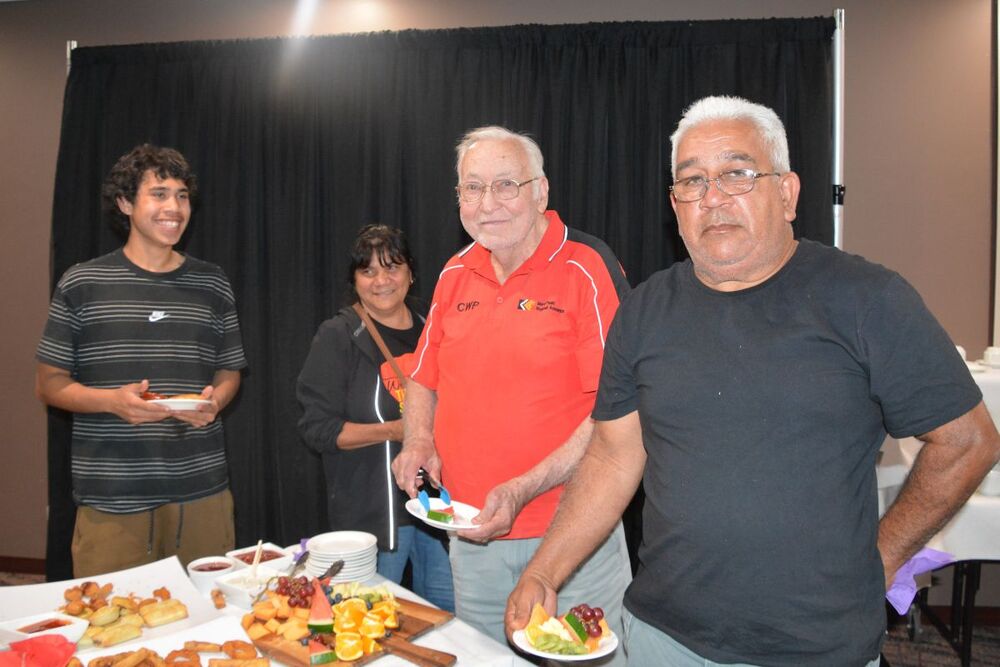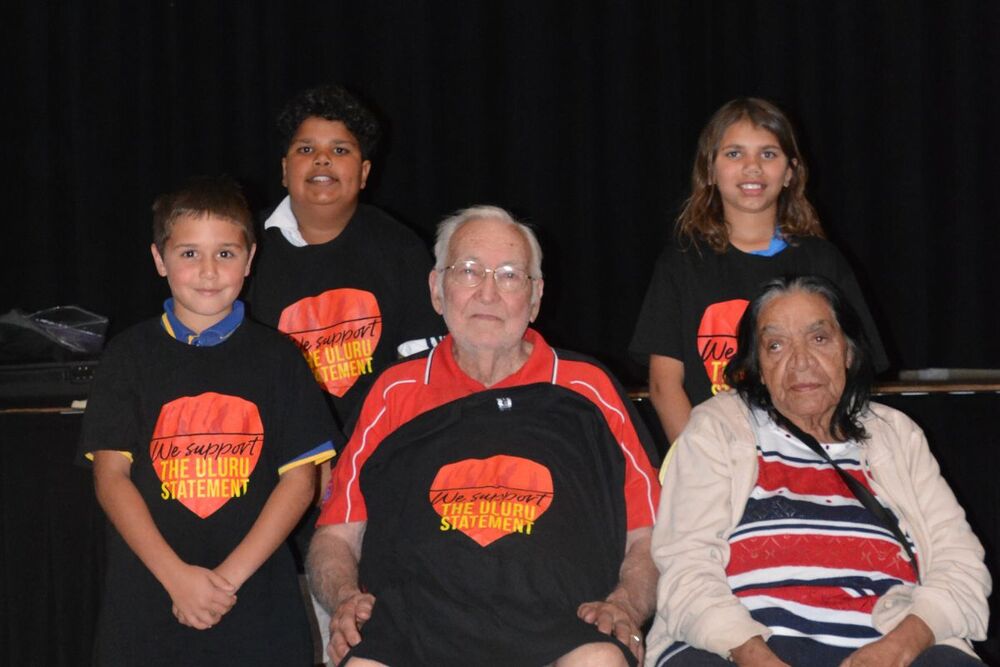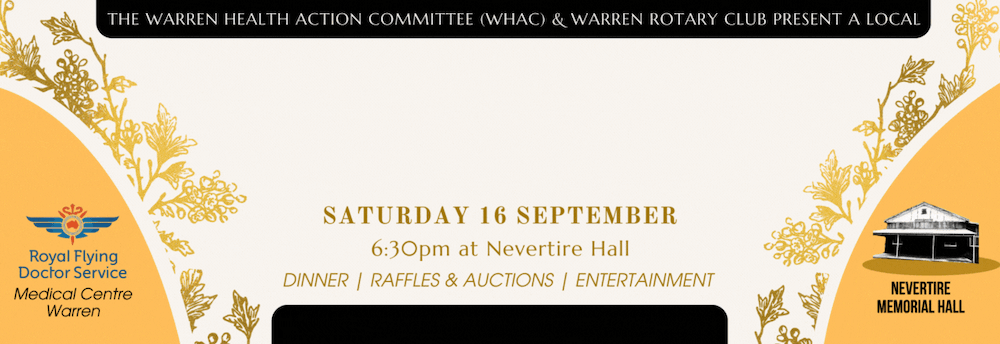Locals learn about the voice
Coonamble Times
12 September 2023, 7:40 AM
 Part of the group attending The Voice information session hosted by Coonamble Local Aboriginal Land Council on Monday 4 September at the Coonamble Bowling Club.
Part of the group attending The Voice information session hosted by Coonamble Local Aboriginal Land Council on Monday 4 September at the Coonamble Bowling Club.With less than six weeks to go before Australians vote on The Voice on 14 October, the fight is on for the hearts and minds of the nation.
On Monday evening 4 September the Coonamble Local Aboriginal Land Council (CLALC), supported by the NSW Aboriginal Land Council (NSWALC), hosted an information session so that local residents could strengthen their understanding of what is being proposed and why.
With little forward advertising, the event at the Coonamble Bowling Club drew around thirty residents keen to expand their knowledge.
Guest presenters were NSWALC Councillor Anne Dennis (Walgett), former Co-Chair of the Prime Minister’s Indigenous Advisory Council Roy Ah-See (Wellington) and Geoff Scott (an Uluru Statement signatory, originally from Narromine).
“We are a lot different to the Aboriginal people in Northern Territory or Western Australia,” Mrs Dennis said.
“But my vote will count for all Aboriginal people right across Australia and how we fight to continue to improve given the statistics for us as Aboriginal people.”
Mrs Dennis said that she hoped the night would give people the understanding to make their vote count in the referendum.
“We need to be sure that when we walk in that ballot box, that we’re going to make an informed decision, because there’s a lot of noise out there,” said Mr Ah-See.
All three speakers have a long involvement in the fight for recognition and Mr Scott has been involved with the Uluru Dialogue - and the thirteen other dialogues held around the country - for the past 15 years.
Local elder Ted Fernando gave the Welcome to Country and the audience were invited to raise their questions, which were noted for discussion later in the evening.
Mr Fernando welcomed the opportunity to learn about The Voice, “We need to be sure that when we walk into the ballot box we make an informed decision.”

Thomas Fernando, Joy Simpson, Ted Fernando and Phillip Wright during a break in The Voice information session.
A 25 minute film outlined the long history towards recognition and self-determination, chronicling the repeated requests - through meetings, letters, petitions, strikes, protests, legal challenges - and the slow progress for the Aboriginal people in seeking freedom, citizens’ rights, land rights and absolute equality.
The film and the presenters also spoke about the structures, policies and programs that had been tried and abandoned in the past thanks to changes in government, the ambitions and whims of Prime Ministers, and political division.
“We’ve had 18 years of Close the Gap - but it hasn’t worked. We’ve had decades and decades of between twenty and thirty billion dollars a year being spent. Only some things have changed but not to the extent they should given that investment,” said Mr Scott.
“Any other sector with that much investment and no change we’d be up in arms about it.
“It’s time for change.”
He explained how referendums work and why constitutional change is considered necessary.
“The Uluru Statement of the Heart is pitched to the people of Australia, not the politicians,” Mr Scott pointed out.
“Because Australians are fair-minded, decent people. A Voice will protect us from the politicians.”
He explained that The Voice was formulated to “To recognise First Peoples, to give us a say in matters that affect us and to protect us from politicians abolishing it.”
The speakers reiterated that you must write the word ‘Yes’ or ‘No’ for the vote to count and that “nine million yeses are required to get it across the line”.
As for what The Voice will eventually look like, that is when it will be up to the politicians.
“We don’t know because the Parliament has to decide after we vote on it,” Mrs Dennis said.
“For The Voice to be effective it is going to take organisation and work, and we are prepared for that.”

Elders Ted Fernando and Peggy Barton with youngsters Leroy Fernando, Koonannah Weribone and Zaiden Dixon Page.
Mr Scott expanded on this theme, “The Constitution sets out the principles, the parameters and the processes, the Parliament fills in the gaps by convention.
“We elect the Parliament, they enact the legislation and laws give effect to the constitution.
“That’s when the hard work will begin.”
Following constitutional recognition, as well as setting up processes and structures for The Voice to conduct its work in advising government on practical issues affecting Aboriginal peoples, it is expected that work will also begin on the Makarrata Commitment, towards further agreement making, including “the unfinished business” of a treaty.
Mr Scott clarified that, “The Voice is not to replace, but to empower, existing aboriginal organisations.”
Two advertisements were shown, including the Uluru Dialogue’s new ad titled You’re the Voice that was launched on Sunday 2 September. The ad pairs Farnham’s iconic song with critical moments in Australia’s history to galvanise support for its Yes campaign.
As promised, the audience questions were answered, with those present encouraged to continue the conversation by speaking with others in the community.
Asked what will happen if the referendum doesn’t get up, Mr Scott said, “We have no Plan B.
“The referendum is an appeal to the Australian people, not the politicians, based on both the heart and the head.
“We won’t accept a legislated body as this hasn’t worked in the past.”
Asked about the news polls showing the Yes vote in trouble, they hinted internal polling was much more optomistic.
Asked how it will change things for the better, Mr Scott said, “It will enable us to shine the light on what’s not working.”
Federal Opposition Leader Peter Dutton is among those continuing to champion the No campaign, most recently saying he will hold another referendum if he gets into power.




